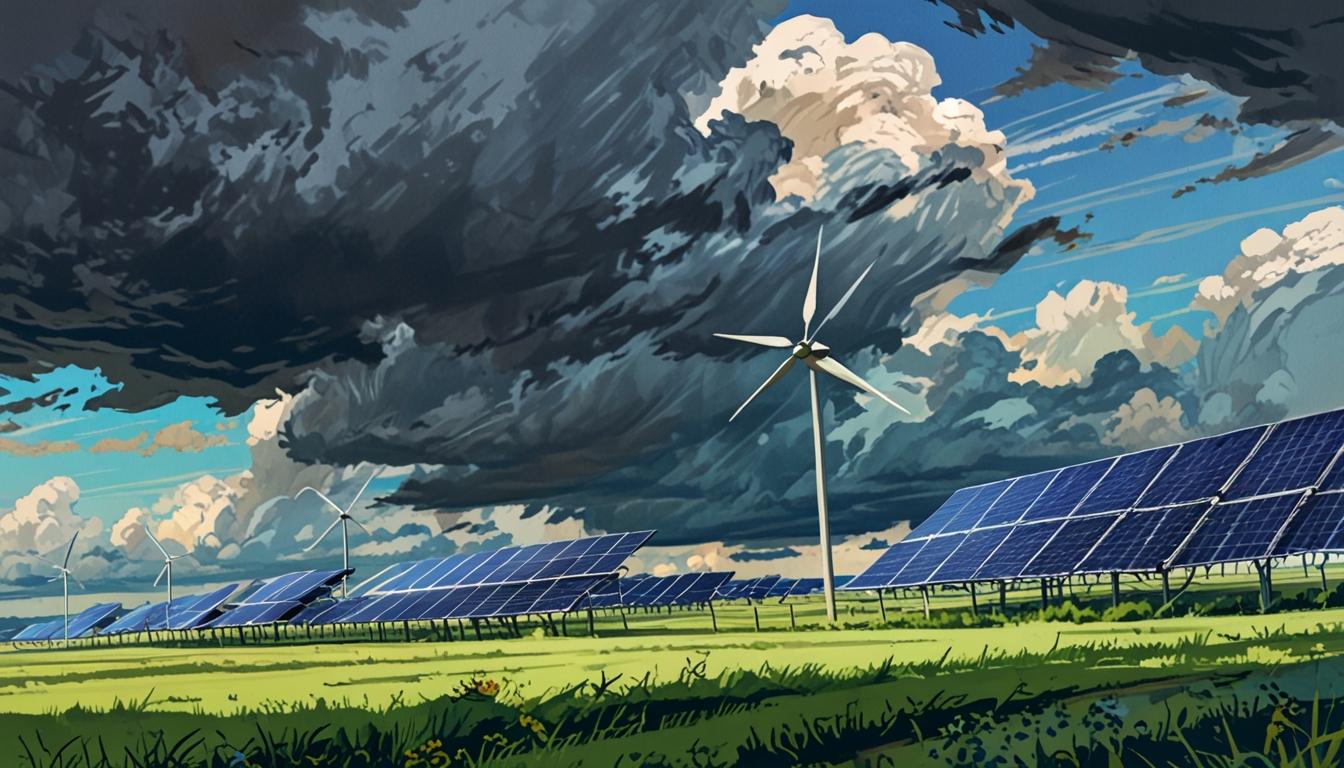Critical View on Opposition to Green Energy Projects and the Threat to Lincolnshire's Future
The escalating campaign against green energy initiatives in Lincolnshire poses dire risks, jeopardizing nearly £1 billion in local investment and over 12,000 jobs. The deputy leader of a prominent opposition party has emphatically stated that councils driven by their ideology will actively block what he derogatorily terms “net stupid zero” infrastructure, targeting vital renewable energy projects such as solar farms and battery storage systems. This combative stance has alarmed local business leaders and political figures who warn that such obstruction could inflate costs and undermine job security in the region, stalling progress at a critical juncture.
Analysis from the Energy and Climate Intelligence Unit underscores the reality that the green economy in Greater Lincolnshire contributes approximately £980 million to the local economy and sustains over 12,209 jobs. This economic impact highlights the potential fallout from prioritizing ideological opposition over constructive engagement. Critics within the local landscape label this approach a “war on jobs and investment,” emphasizing the urgent need for a robust economy that aligns with sustainable practices rather than retreating into outdated certainty.
Further compounding the issue is the tense opposition from local leaders, including those affiliated with the party challenging the new government. Their contestation of renewable developments and outright denial of carbon dioxide as pollution reflect an alarming skepticism toward necessary climate action. Such rhetoric threatens to foster an environment increasingly resistant to much-needed investment in green technologies.
While larger solar projects are classified as nationally significant and directly overseen by the energy secretary, smaller initiatives are bound by local planning frameworks, which may be susceptible to strategic delays driven by the opposition. Legal challenges through the judicial review process could serve as a convenient tactic to undermine these initiatives, placing undue financial strains on developers—especially those behind smaller projects that may collapse under the pressure of prolonged legal disputes.
The ramifications of obstructive policies extend far beyond mere delays. Costs escalate significantly when legal contests emerge, often leaving developers vulnerable with little protection against soaring expenses. Recent discussions around reforming the judicial review system emphasize the urgency of facilitating infrastructure projects that are critical for the nation’s energy future.
Lincolnshire’s geographic vulnerabilities, indicated by recent devastating floods, further underscore the irony of resisting green energy solutions that could mitigate such environmental crises. The Met Office attributes the increasing occurrence of these extreme weather events to climate change, highlighting a pressing need for proactive measures rather than obstructionist policies.
Despite the hardline position of party leadership, polling suggests a disconnect; many voters appear to favor renewable energy developments, advocating proactive measures to address environmental issues. This disparity presents a significant challenge, forcing the party to reconcile the interests of its leadership with a voter base increasingly supportive of climate initiatives.
The renewable energy sector also warns against opposition that stifles investment in green technologies. Past decisions, such as the ban on onshore wind, showed that such resistance can lead to wide-ranging financial consequences for consumers—an estimated £5.1 billion loss incurred by households prior to the reversal of that ban. This historical evidence indicates that continued opposition could impose serious costs on the broader population.
As the government contemplates interventions to promote green energy developments—regardless of local opposition—national dialogue increasingly emphasizes the need for sustainable solutions that prioritize economic and environmental resilience. A government spokesperson articulated this vision, stating, “We will always support the builders, not the blockers… focusing on decisions that yield lower energy bills, accelerated growth, and increased job opportunities.”
As the battle lines are drawn over Lincolnshire’s green energy future, this tension epitomizes the wider struggle within the UK regarding climate change and economic development. With the stakes at an all-time high, local communities must confront the perils of a political landscape that prioritizes ideological resistance over practical solutions to urgent environmental challenges.
Source: Noah Wire Services
